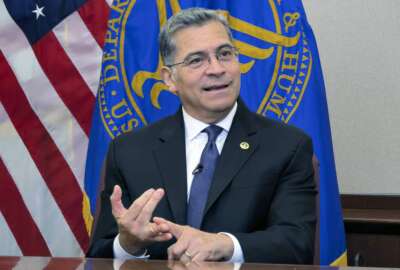Senate to debate cyber bills in early 2012
Senate Majority Leader Harry Reid promised to bring up comprehensive cybersecurity legislation early on in 2012. Last year, there were more than 50 bills introduced...
wfedstaff | June 4, 2015 3:43 pm
By Jolie Lee
Web Editor
Federal News Radio
@jleewfed
Senate Majority Leader Harry Reid (D-Nev.) promised to bring up comprehensive cybersecurity legislation early in 2012. Last year, there were more than 50 bills introduced in Congress, but they received little attention.
2012 just might be the year Congress tackles cybersecurity.
“Cyber risk is one of the key emerging national and economic issues of our time,” said Jacob Olcott, former counsel for Chairman of the Senate Commerce Committee Sen. Jay Rockefeller (D-W.Va.), and now a principal with Good Harbor Consulting.
A comprehensive bill is still being negotiated and congressional staffers are “circulating drafts of the bill for comment for the public and private sector,” said Olcott in an interview with The Federal Drive with Tom Temin. He said Reid would probably introduce the bill “in the next couple of months.”
The primary focus of the bill will address how to build an organizational structure in the federal government to deal with cyber, how to update the Federal Information Security Management Act (FISMA) , the responsibilities of the Homeland Security Department, rules on information sharing, a plan for research and development, and “the $100,000 question is what to do about critical infrastructure,” Olcott said.
Specifically, the legislation will address the ways government would respond if something “catastrophic” happens, like an attack on the electric grid or on chemical facilities, Olcott said. The Energy Department announced this week it will enhance the security of the nation’s electric grid, starting with measuring the utility companies and grid operators’ abilities in cyber defense, according to the Energy website.
In May 2011, the White House released its cyber plan, proposing that DHS oversees federal civilian networks. The plan would also streamline the threat detection system and support continuous monitoring of networks.
Olcott said the Senate’s comprehensive cyber bill will take “fundamentally similar approaches to the problem” as the administration’s plan.
“The recognition today is that the Department of Homeland Security has had and will continue to have a lead role in dealing with pieces of critical infrastructure,” he said.
RELATED STORIES
White House begins comprehensive cybersecurity quest
Pentagon can now go on cyber offensive
White House cyber proposal boosts DHS role
Energy aims to improve security of electric grid
This story is part of Federal News Radio’s daily Cybersecurity Update. For more cybersecurity news, click here.
Copyright © 2025 Federal News Network. All rights reserved. This website is not intended for users located within the European Economic Area.





